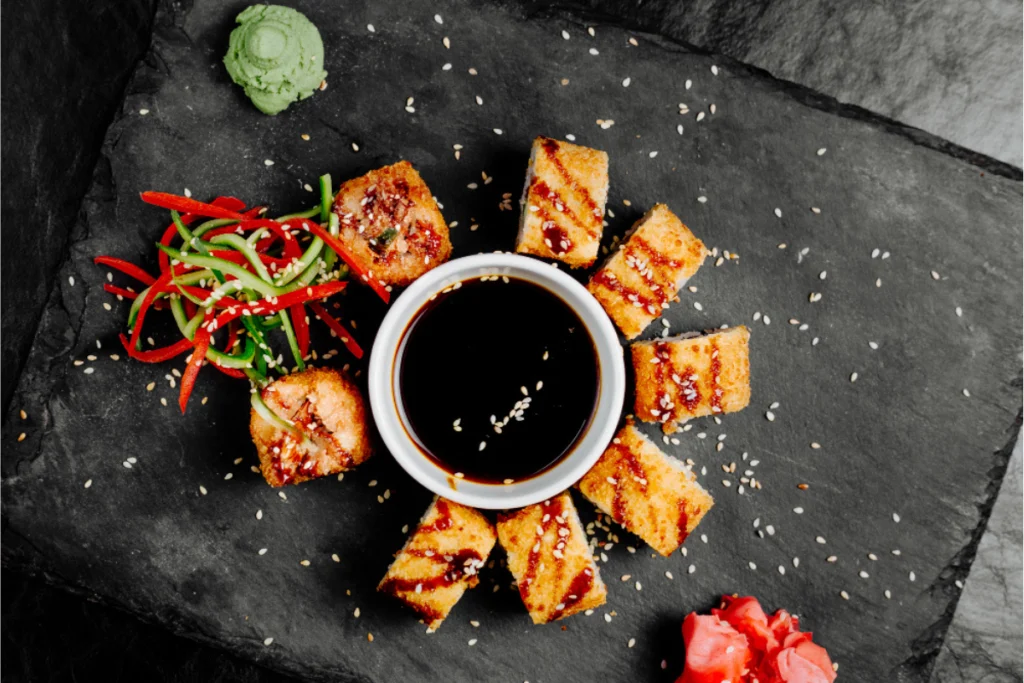
Soy sauce is a cherished condiment that adds umami richness and depth to a wide variety of dishes. However, like many foods in our pantry, it prompts questions about its shelf life and storage: Can soy sauce go bad? If so, how do you know when it’s no longer safe to use? This guide explores everything you need to know about the shelf life of soy sauce, proper storage techniques, signs of spoilage, and best practices to help you keep it fresh and flavorful for as long as possible.
Understanding the Ingredients and Natural Preservation of Soy Sauce
Soy sauce has a surprisingly long shelf life due to its ingredients and the fermentation process it undergoes. Here are the key ingredients that contribute to its durability:
- Soybeans and Wheat: These are the primary ingredients in traditional soy sauce, offering a rich base for fermentation. The presence of proteins in soybeans contributes to the umami taste.
- Salt: The high salt content in soy sauce acts as a natural preservative, preventing bacterial growth and spoilage.
- Water: It serves as the medium for the fermentation process, helping to dissolve the salt and distribute it evenly.
The fermentation process for soy sauce, which can last several months to years, stabilizes its ingredients, making it a highly durable condiment. Thanks to its salty, acidic nature, soy sauce resists spoilage more effectively than many other pantry staples. According to Kapnos’s insights on soy sauce preservation, unopened soy sauce stored in optimal conditions can last indefinitely, though its flavor may subtly change over time.
How Soy Sauce’s Preservation Works
Soy sauce’s longevity is a result of two preservation mechanisms:
- High Salt Content: Salt is a powerful preservative that prevents bacterial growth, making soy sauce one of the longest-lasting condiments.
- Fermentation: During fermentation, soy sauce undergoes chemical changes that produce a robust, stable flavor. This stability makes it resistant to spoilage, even after its “best by” date.
Due to these preservative qualities, soy sauce often lasts far beyond its labeled date, especially when stored correctly.
How Long Does Unopened Soy Sauce Last?
Unopened soy sauce can remain good for years if stored in the right conditions. Here’s what you should know:
- Storage Conditions: Keep unopened soy sauce in a cool, dark place, such as a pantry or cupboard. Avoid exposing it to sunlight and extreme temperatures, as this can affect its quality.
- Shelf Life: Most unopened soy sauce bottles are labeled with a “best by” date, which is a guideline for optimal flavor. However, if stored correctly, unopened soy sauce can last three years or more, as it is resistant to spoilage due to its high salt content and fermentation.
- Flavor Changes Over Time: Although it may remain safe to use, unopened soy sauce can undergo subtle changes in flavor and color due to oxidation. For best quality, consume it within a few years of purchase.
For further insights on soy sauce’s longevity, check out Eat By Date’s comprehensive guide on soy sauce shelf life.
Shelf Life of Opened Soy Sauce
Once you open soy sauce, it is exposed to air, which begins a slow process of oxidation. While this doesn’t immediately spoil it, it can cause gradual flavor and quality changes. Here’s what to expect after opening a bottle:
- Room Temperature Storage: Soy sauce can be kept at room temperature for up to six months. It should be stored in a cool, dry place, away from direct sunlight to preserve its quality.
- Refrigeration: Storing opened soy sauce in the refrigerator is recommended to prolong its flavor and quality, especially if you don’t use it frequently. In colder conditions, soy sauce can last up to two years without significant changes in flavor.
- Flavor Changes: Opened soy sauce may darken and develop a more intense flavor over time. This is due to oxidation, which doesn’t necessarily mean it has spoiled but can alter its taste slightly.
If you’re interested in understanding how to store soy sauce effectively, Pearl River Bridge offers guidance on soy sauce shelf life and storage tips.
Storage Tips for Different Types of Soy Sauce
Soy sauce comes in various types, and each may have slightly different storage needs based on its ingredients and composition:
- Traditional Japanese Soy Sauce (Shoyu): Shoyu has a lighter, balanced flavor that can deteriorate more quickly at room temperature. It’s best to refrigerate Shoyu after opening to preserve its delicate taste.
- Chinese Soy Sauce (Light and Dark):
- Light Soy Sauce: Due to its high salt content, Chinese light soy sauce can remain stable at room temperature.
- Dark Soy Sauce: Dark soy sauce, which is richer and sweeter, may benefit from refrigeration to retain its nuanced sweetness.
- Tamari: Tamari is a gluten-free soy sauce that closely resembles traditional soy sauce in taste but has a slightly different composition. Like other soy sauces, tamari should be refrigerated after opening to maintain freshness.
- Low-Sodium Soy Sauce: Low-sodium varieties contain less salt, which makes them more susceptible to spoilage. These should always be refrigerated after opening.
For a detailed breakdown of each soy sauce type, see Soy Sauce: A Complete Guide to the World’s Most Versatile Condiment, which covers everything from flavor profiles to storage recommendations.
How to Store Soy Sauce Properly
To maximize the shelf life of soy sauce, follow these storage best practices:
- Unopened Bottles: Keep in a cool, dark area, such as a pantry. The lack of light and stable temperature help prevent oxidation.
- Opened Bottles: If you use soy sauce regularly, storing it at room temperature is fine. However, if you use it less frequently or live in a warm climate, refrigeration is ideal for long-term storage.
- Close the Lid Tightly: After each use, ensure the bottle is sealed to minimize air exposure, which accelerates oxidation and affects flavor over time.
By following these guidelines, you can keep soy sauce fresh and flavorful.
Recognizing When Soy Sauce Has Gone Bad
Although soy sauce is known for its long shelf life, it can still show signs of deterioration over time. Here are indicators that your soy sauce may no longer be suitable for consumption:
- Color Changes: A slight darkening is normal, especially in opened bottles. However, if the soy sauce becomes unusually dark or cloudy, it may have deteriorated.
- Sediment or Cloudiness: Some natural sediment may form over time, but if there is excessive cloudiness or particles, this can indicate spoilage.
- Unpleasant Smell: A sour, musty, or overly sharp odor suggests that the soy sauce has gone bad.
- Off Taste: If the flavor is overly bitter or has an off taste, it’s best to discard the soy sauce.
To learn more about how to identify spoiled soy sauce, refer to How to Tell if Soy Sauce is Bad: A Comprehensive Guide.
Using Expired Soy Sauce: Is It Safe?
Soy sauce often carries a “best by” date rather than a strict expiration date, which indicates peak quality rather than safety. Here’s what to consider if you’re thinking of using soy sauce past its best-by date:
- Best By vs. Expiration: The “best by” date signals when the flavor is at its peak, but soy sauce can remain safe beyond this date if stored properly.
- Quality Check: Before using expired soy sauce, check for any unusual smells, cloudiness, or changes in taste.
- When in Doubt, Throw It Out: If you detect any spoilage signs, it’s safer to replace the bottle.
Using expired soy sauce is often safe as long as it has been stored properly and shows no signs of spoilage.
Potential Health Risks of Spoiled Soy Sauce
Although soy sauce is generally safe and rarely spoils, using a compromised bottle can have potential health risks:
- Microbial Growth: Low-sodium soy sauce and improperly stored soy sauce are more susceptible to bacterial growth, which can pose health risks if consumed.
- Food Poisoning Symptoms: Spoiled soy sauce may cause mild food poisoning symptoms, such as nausea or digestive discomfort.
- Safe Storage: To minimize risks, always follow recommended storage practices and discard any soy sauce that appears or smells off.
By following these safety guidelines, you can ensure that your soy sauce remains a safe and delicious addition to your meals.
Frequently Asked Questions (FAQs)
How can I tell if my soy sauce has gone bad?
Look for signs such as darkening, sediment, cloudiness, or an unusual smell. A sour or musty odor is an indicator of spoilage.
Does low-sodium soy sauce spoil faster?
Yes, low-sodium soy sauce has less salt to act as a preservative, making it more prone to spoilage. It’s best to refrigerate it after opening.
How long does soy sauce last in the fridge?
When refrigerated, opened soy sauce can maintain its flavor and quality for up to two years.
Is it safe to use expired soy sauce?
Soy sauce can often be safe to use past its “best by” date if stored properly, with no signs of spoilage.
Why does soy sauce change color over time?
Oxidation causes soy sauce to darken over time, especially once opened. This is a natural process and doesn’t necessarily mean it has spoiled.
Conclusion: Keeping Soy Sauce Fresh
With its high salt content and fermentation, soy sauce is a remarkably resilient condiment. However, proper storage is essential to preserve its quality and flavor. Unopened bottles should be kept in a cool, dark place, and opened bottles are best refrigerated for long-term freshness. By following these tips and regularly checking for signs of spoilage, you can enjoy the rich flavor of soy sauce in your cooking for years to come.
